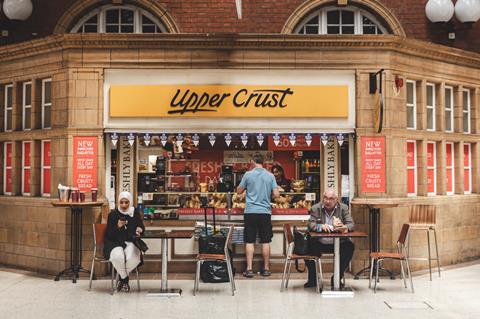
Industrial action aside, the UK travel market has recovered fairly well following the pandemic, something that has been good news for Upper Crust and Millies operator SSP.
2022 was an exceptional year for the travel food business, according to chair Mike Clasper, with turnover up 162% to £2.2bn as it bounced back from the restrictions forced on the industry by Covid-19.
Recovery was even stronger in the UK division, with revenue up 224% year-on-year to £614.9m, although sales averaged only 73% of 2019 levels. SSP made a reported operating profit of £27.7m, versus a £57.4m loss the previous year.
The company’s annual report revealed key opportunities and trends that will be relevant not only to SSP but other baked goods retailers and suppliers. Here we pick five of them:
Menus: Healthier and sustainable food is driving development
SSP is developing menus to offer healthier and more sustainable options.
The company explained that by the end of 2022, 33% of meals offered by its own brands globally were plant-based or vegetarian.
It pointed out, however, that that figure is driven by a small number of markets, such as India, where more than 40% of meals are plant-based or vegetarian.
SSP plans to focus in increasing its plant-based and vegetarian options in its other markets and is developing a new People & Planet Menu Framework that gives guidelines and criteria for creating healthier and more sustainable menus.

Recruitment: Pay is no longer all that candidates look for
Staff recruitment and retention has been one of the biggest challenges faced by British businesses in the past couple of years.
SSP pointed out that the UK hospitality sector had the highest proportion of vacancies of any industry in 2022, although it is has seen similar trends across Europe, the US and Australia.
“The competition for talent is intense, requiring businesses to offer a whole range of compelling benefits to match colleagues’ growing expectations,” it stated.
“Compensation is no longer enough to attract talented recruits, who are now also increasingly focused on wellbeing, work-life balance, and development opportunities.”
SSP said it has introduced incentives to attract and retain staff by making improvements to pay and benefits. In the UK it has also rolled out a referral scheme which it says has helped grow its workforce.
The business has also increased the size of its group recruitment team and is launching a global careers website in 2023.
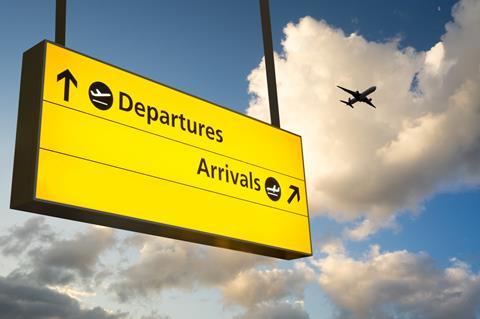
Growth: Convenience and North America are major opportunities
Writing in the annual report, SSP chief executive Patrick Coveney stated there was a “significant opportunity” for the business to be a bigger player in convenience retail.
“[This will] build on our extensive experience in these formats, such as our M&S Simply Food outlets in the UK and our Point outlets across the Nordic countries, as well as many of our own concepts,” explained Coveney, who joined the company from Greencore in March last year
He added that the industry had a lot of new business to go for.
“We’re only in 30 of the top 80 airports in North America, with less than 10% overall market share in the air channel. We’ve been growing rapidly but clearly there is scope to go much further and faster.”
Coveney also pointed out that only 3% or 4% of the Indian population has flown but this is set to more than double by 2030.
“There is huge investment in airport infrastructure to meet this increasing demand, so it’s a really exciting market for us to be in.”
Digital: Consumers want fast and reliable experiences.
Growth of digital technology means consumers are looking for products and services that enable simpler, faster, and more reliable experiences, stated SSP.
The company explained that what used to be separate stages of a customer journey are increasingly being rolled into a single tech-enabled interaction.
“Technology allows customers to browse menus, customise orders, and track preparation and delivery, for a more personalised experience,” it stated in the report.
SSP has introduced self-order solutions including mobile and kiosk-based order and payment, and has worked with Starbucks to launch digital pay solutions at Gatwick Airport and two UK stations.
The business introduced its first contactless retail concept, at its the Camden Food Co site at New York’s John F Kennedy Airport. Customers tap their credit card as they enter and begin picking items off shelves. The items and costs are logged by the technology, and when the customer leaves, the total amount spent is automatically charged to the card.

UK and Ireland travel recovered in 2022
The pandemic took a heavy toll on SSP as business and holiday travel ground to a halt but the market has grown in the past year.
SSP reports that air passenger numbers were boosted by an extended European summer holiday season in autumn 2021 [SSP’s financial year starts in September]. UK rail commuter numbers improved steadily during 2022.
The arrival of the Omicron variant dented sales in January but these recovered in February and March as Covid-19 restrictions eased.
The company described UK summer trading as extremely strong, with leisure travel passenger numbers rising to or exceeding 2019 levels in some airports.
As a result, revenue for the company’s last quarter was 85% of 2019 levels despite the impact of industrial action on the railways.



















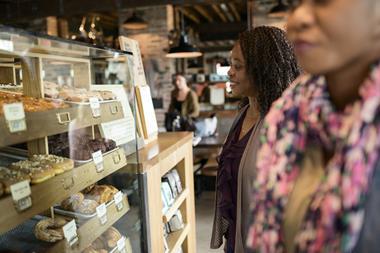
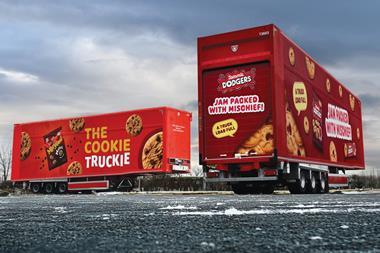


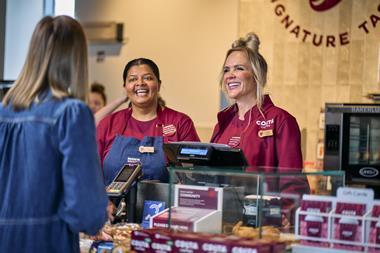

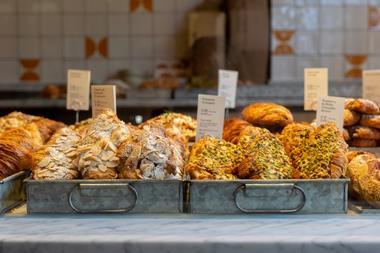
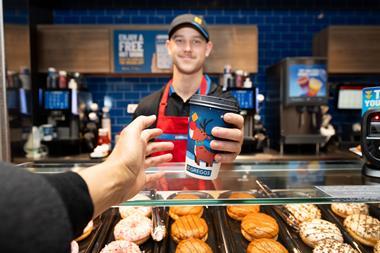
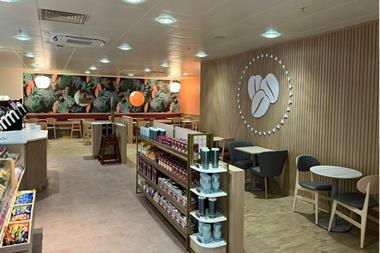




No comments yet